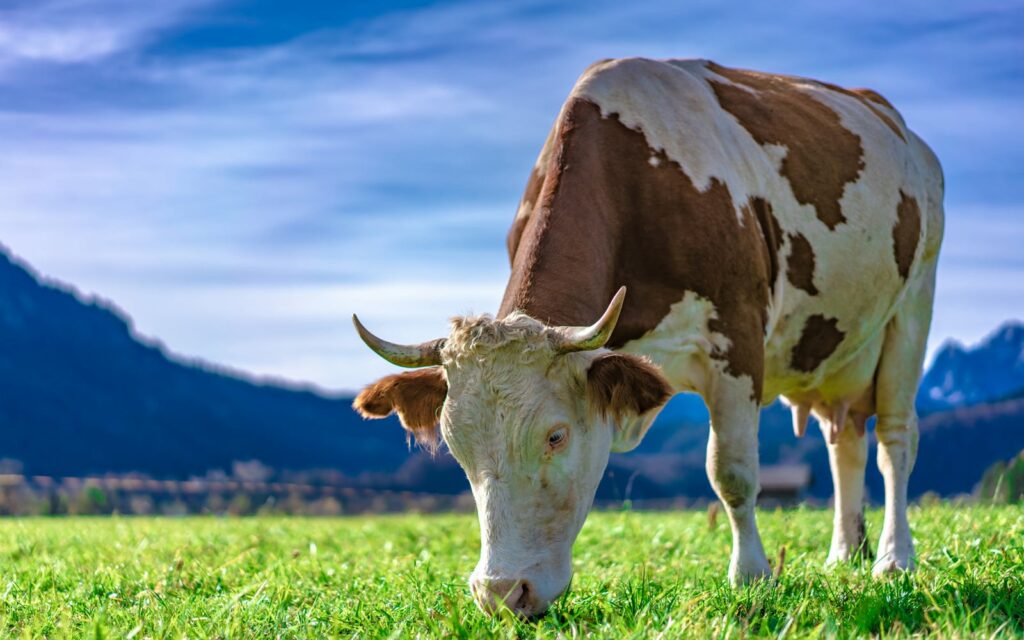Why Go Vegan?

Have you ever thought about how your food choices can impact your health and the world around you? Choosing a vegan lifestyle can bring about significant changes in your life. It’s not just about what you eat; it’s a decision that reflects your values and has wide-reaching effects. So, why go vegan? Let’s explore some compelling reasons that might shift your perspective on food and its impact.
Eating vegan can improve your health by reducing the risk of chronic diseases like heart disease, diabetes, and certain types of cancer. Plant-based diets are rich in nutrients and antioxidants that support overall well-being.
By going vegan, you can also contribute to environmental sustainability. Animal agriculture is a leading cause of deforestation, water pollution, and greenhouse gas emissions. Choosing plant-based options can help reduce your carbon footprint and support a more sustainable future.
Furthermore, veganism promotes ethical treatment of animals. By opting for plant-based foods, you’re taking a stand against animal cruelty and supporting a more compassionate way of living.
Making the switch to a vegan lifestyle may seem daunting at first, but there are now more options than ever before. From delicious plant-based recipes to a growing number of vegan products in stores, transitioning to a vegan diet has never been more accessible.
The Ethical Reasons To Go Vegan
Why should you go vegan? Choosing to go vegan is a powerful way to stand up for animal rights, decrease animal exploitation, and help protect the environment.
By adopting a vegan lifestyle, you actively demonstrate compassion towards animals, promote their well-being, and contribute to reducing the environmental impact of animal agriculture.
Your decision to go vegan aligns with ethical considerations and sets a positive example for others to follow.
Animal rights
Animal rights advocate for the ethical treatment and consideration of all sentient beings. Veganism aligns with the principles of animal rights by promoting cruelty-free living and reducing animal suffering.
By choosing a vegan lifestyle, you actively work towards liberating animals from exploitation and abuse in industries like factory farming, dairy, and egg production. Recognizing the consciousness and sentience of animals underscores the importance of practicing compassion towards all living beings.
Going vegan is a powerful way to demonstrate your commitment to animal rights and ethics, as it represents a conscious choice to prioritize the well-being and respect of animals. Supporting the ethical treatment of animals through your decision to go vegan can make a positive impact.
Decrease animal exploitation
Decreasing animal exploitation is a core principle of adopting a vegan lifestyle. By choosing to go vegan, you actively support animal welfare, promote sustainable living, and embrace a cruelty-free way of life.
The practices of animal agriculture often involve the mass exploitation and suffering of animals, raising ethical concerns about consuming animal products. Opting for veganism aligns with ethical consumption practices, rejecting the exploitation of animals for food, clothing, entertainment, or any other purposes.
Choosing a vegan lifestyle demonstrates a commitment to ethical eating and shows compassion towards all living beings. Your decision to go vegan not only benefits animal welfare but also contributes to a more sustainable and ethical way of living.

Helps the environment
The benefits of adopting a vegan diet for the environment are significant and wide-ranging. By choosing a vegan diet, you can:
- Reduce climate-heating emissions, water pollution, and land use by up to 75% compared to meat-heavy diets
- Help cut wildlife destruction by 66%
- Decrease water usage by 54%
Even the most environmentally friendly meat option, organic pork, causes eight times more climate damage than plant-based alternatives.
Transitioning to a vegan or low-meat diet can have a positive impact by reducing greenhouse gas emissions, water pollution, and land use. In fact, vegan diets result in a 93% lower emission of methane compared to high-meat diets. Making mindful dietary choices, such as opting for plant-based foods over animal products, plays a crucial role in promoting global food sustainability and combating climate change effectively.
Stop Supporting Animal Cruelty
Supporting animal cruelty is a harsh reality in various industries, with around 1 billion animals farmed and slaughtered annually in the UK alone. Factory farming, commonly found in the meat, dairy, and egg sectors, confines animals in stressful and overcrowded conditions, depriving them of their natural behaviors. These animals often face brutal ends in slaughterhouses, where profit takes precedence over their welfare. Labels like ‘free-range’ and ‘organic’ may mislead consumers, as investigations reveal similar mistreatment in these supposedly more humane settings.
The dairy industry forces cows into cycles of artificial insemination, separation from their calves, and eventual slaughter once they’re no longer profitable. Likewise, the egg industry involves the killing of male chicks and subjecting hens to painful procedures and cramped environments.
In the fishing industry, countless fish and marine creatures endure suffering due to practices such as overfishing and bycatch. Despite growing evidence of their sentience, these animals are caught in large numbers, contributing to ocean pollution. Recognizing the inherent cruelty in these industries is vital for making compassionate choices that respect the well-being of animals.
How a Vegan Diet Benefits Your Health
Going vegan can reduce your risk of chronic diseases such as heart disease and diabetes, help lower your BMI leading to weight loss, and eliminate health risks associated with meat consumption.
A vegan diet provides all the necessary nutrients needed for good health, including fiber, antioxidants, potassium, magnesium, and essential vitamins.

Reduces risk of chronic diseases like heart disease and diabetes
Adopting a vegan diet has been shown to significantly reduce the risk of chronic diseases like heart disease and diabetes. A study conducted with identical twins at Stanford University revealed that participants following a vegan diet had lower LDL-C levels, insulin levels, and body weight compared to omnivores. The research showed a 20% decrease in fasting insulin levels, reductions in average LDL-C levels, and more weight loss among those on a vegan diet.
Moreover, the vegan diet led to improvements in cardiovascular health markers, emphasizing the positive impact of plant-based foods on overall health. Incorporating more plant-based foods into your diet can contribute to a healthier lifestyle and lower the risk of chronic diseases.
Linked to lower BMI and weight loss
A vegan diet is associated with a lower BMI and can support weight loss, contributing to better overall health and well-being. By focusing on whole, unprocessed plant foods like fruits, vegetables, legumes, and nuts, individuals can achieve sustainable weight loss. Practicing portion control and mindful eating are key strategies for managing caloric intake effectively.
It is important to ensure an adequate intake of protein from sources such as tofu and legumes, while incorporating healthy fats in moderation, such as avocados and nuts. This balanced approach not only aids in weight management but also provides essential nutrients for overall health.
Transitioning to a vegan lifestyle not only benefits personal health but also aligns with sustainability goals by reducing environmental impact and resource consumption. By choosing plant-based options, individuals can make a positive impact on their health and the planet.
Eliminates health risks associated with meat
Eliminating meat from your diet can significantly reduce health risks associated with high cholesterol levels, heart disease, certain cancers, and obesity. A plant-based diet can lower cholesterol levels, decreasing the chances of heart-related issues.
By choosing veganism, you reduce the risk of developing certain cancers linked to meat consumption. Additionally, obesity, often associated with meat-heavy diets, can be better managed with a plant-based approach.
Opting for a vegan lifestyle not only benefits your health but also aligns with the philosophy of saving animals. Embracing veganism can lead to a longer and healthier life by prioritizing nutrition and reducing the intake of harmful substances found in animal products.

Provides all nutrients needed for good health
A well-balanced vegan diet provides all the essential nutrients needed for good health. Vegan nutrition offers numerous health benefits, with plant-based sources rich in key nutrients.
Iron can be found in pulses, wholemeal products, fortified cereals, and dark leafy greens. For Vitamin B12, important sources include fortified breakfast cereals, soya drinks, yeast extract, and nutritional yeast flakes. Omega-3 can be obtained from ground linseed oil, vegetable oil, chia seeds, hemp seeds, and walnuts, which are crucial for overall health.
It’s important to consider supplementation for nutrients like Vitamin B12 and iron to ensure adequate intake on a plant-based diet. Remember, maintaining a balanced diet with plenty of fruits, vegetables, and fiber is essential for a healthy heart while following a vegan lifestyle.
Protecting The Environment With Veganism
By adopting a vegan lifestyle, you significantly decrease your carbon footprint, as animal agriculture is a major contributor to greenhouse gas emissions. Choosing plant-based options requires fewer land, water, and energy resources compared to meat and dairy production.
Additionally, going vegan helps in preventing deforestation and the extinction of various species, making it a crucial step in protecting the environment.

Dramatically reduces carbon footprint
Reducing your carbon footprint significantly by adopting a vegan diet is a practical way to help protect the environment and address climate change. The production of meat and dairy products is a major contributor to greenhouse gas emissions, particularly red meat production. By choosing a vegan lifestyle, you can reduce your carbon footprint compared to traditional meat-based diets.
While being vegan may not always result in a lower carbon footprint due to factors like food transportation, opting for locally sourced and sustainable plant-based foods can promote eco-friendly living.
Transitioning to a vegan diet can lead to a 50% reduction in your carbon footprint, which is equivalent to taking 6 cars off the road. This change can save approximately 1.5 tons of CO2 emissions annually, conserve 6000 gallons of water, and protect 40 square feet of forest every day. By making this shift, you’re making a positive impact on the environment and contributing to a more sustainable future.
Requires fewer land, water and energy resources
Adopting a vegan lifestyle is an environmentally-friendly choice that significantly reduces the use of land, water, and energy resources compared to traditional meat-based diets. Plant-based diets have a lower environmental impact, supporting sustainability and conservation efforts.
By reducing meat and dairy consumption, individuals can lower their environmental footprint, promoting sustainable agriculture practices and biodiversity. Opting for a climate-friendly vegan diet helps conserve precious resources like water and land, making it a more sustainable dietary option.
Research indicates that transitioning to a vegan lifestyle can have a substantial positive impact on the environment and contribute to global food sustainability. Making conscious choices, such as embracing a vegan diet, is essential for promoting a more sustainable and eco-friendly way of life.

Prevents deforestation and species extinction
Choosing a vegan lifestyle significantly contributes to protecting against deforestation and species extinction, making a positive impact on environmental conservation.
Veganism helps prevent deforestation by using land more efficiently, as it doesn’t require vast areas for animal agriculture. By reducing the demand for livestock farming, plant-based diets help preserve habitats and prevent biodiversity loss. Sustainable land management is promoted through vegan practices, supporting responsible land stewardship.
This ethical choice promotes long-term sustainability by conserving land, lowering greenhouse gas emissions, and addressing global land use challenges. Embracing veganism is a practical way to safeguard ecosystems, prevent species extinction, and support a healthier planet.
Fight Climate Change by Avoiding Meat and Dairy
Shifting towards a plant-based diet can have a significant positive impact on combating the climate crisis by reducing your carbon footprint. Animal agriculture is a major contributor to greenhouse gas emissions, particularly methane and nitrous oxide, which are potent drivers of climate change. Opting for plant-based alternatives can help lessen the environmental impact associated with meat and dairy production.
A vegan diet offers numerous benefits, including a lower carbon footprint and reduced emissions. Producing protein from plant-based sources is more eco-friendly compared to animal protein, helping to lower your nitrogen footprint and contribute to the reduction of nitrous oxide emissions. Experts emphasize the importance of transitioning to plant-based diets to effectively address climate change.
Reducing meat and dairy consumption is essential for mitigating greenhouse gas emissions. Making ethical choices in your diet can positively impact the environment and support animal welfare. Embracing a vegan lifestyle not only benefits your health but also aligns with sustainable practices that can help address the climate crisis. Consider the environmental advantages of a vegan diet as you make decisions that can make a difference in the fight against climate change.
Vegan Diets are Nutrient-Rich
A well-rounded and nutrient-rich vegan diet includes a variety of plant-based protein sources and fortified foods. Legumes, nuts, seeds, tofu, and whole grains are excellent sources of essential nutrients. Beans and lentils are rich in protein, while nuts and seeds provide healthy fats. Tofu, tempeh, and seitan offer plant-based protein options, and whole grains like quinoa and amaranth are nutrient-dense choices for meals.
Fortified foods are essential in a vegan diet to ensure adequate intake of nutrients like calcium, vitamin D, and B12. Calcium-fortified plant milks and yogurts can replace dairy products, and nutritional yeast fortified with B vitamins is a versatile ingredient. Foods rich in choline, such as tofu and cauliflower, support liver and brain health, addressing potential nutrient gaps in a plant-based diet.
Omega-3 fatty acids, found in chia and flaxseeds, are important for heart health, while antioxidants in plant foods help combat oxidative stress. Simple cooking methods like soaking legumes and choosing unprocessed nuts and seeds can enhance nutrient absorption. Including a variety of fruits, vegetables, and ingredients in meals ensures a well-balanced and nutrient-rich vegan diet that supports overall health and well-being.
Going Vegan Is Easier Than You Think
Transitioning to a vegan lifestyle can be surprisingly straightforward, especially when armed with the right knowledge and resources. Vegan recipes offer a wide array of delicious food options that cater to diverse cuisines, making it easier to choose healthier options. Exploring dairy alternatives and meat substitutes can help make your transition to veganism smoother and more enjoyable.
In today’s digital age, influencers and documentaries play a significant role in dispelling vegan myths and showcasing the benefits of a plant-based diet. These resources provide valuable insights and practical tips for those considering going vegan. Additionally, learning from renowned food writers who advocate for plant-heavy diets can inspire you to create nutritious and satisfying dishes.

Save Money By Switching to a Plant-based Diet
Switching to a plant-based diet can help you save money while also improving your health and reducing your environmental impact. By cutting out meat and dairy products from your shopping list, you can lower your overall food expenses significantly. Plant-based foods aren’t only cost-effective but also offer a variety of affordable options that can be found in local grocery stores and specialty shops. Staples like oatmeal, fruits, legumes, and beans are nutritious and budget-friendly choices.
Choosing plant-based proteins such as canned beans can be a wallet-friendly way to meet your dietary needs without breaking the bank. This shift towards plant-based eating not only saves you money but also plays a part in minimizing the environmental footprint of food production. Plant-based diets have a smaller carbon footprint and require fewer resources like land and water compared to animal-based diets. By opting for plant-based foods, you support sustainable and ethical food practices that benefit both people and the planet.
The Positive Impacts of Veganism
When you choose to embrace a vegan lifestyle, you can make a positive impact on your health, the environment, and animal welfare all at once. A well-planned vegan diet can provide all the necessary nutrients for good health. Research indicates that individuals following a vegan diet tend to have lower blood pressure, cholesterol levels, and reduced risks of certain diseases such as heart disease and certain cancers. This dietary shift can also be an opportunity for you to explore and enhance your knowledge about nutrition and cooking, leading to the incorporation of more health-promoting plant-based foods rich in essential nutrients like protein, fiber, and minerals.
In addition to the health benefits, going vegan can significantly benefit the environment. By avoiding animal products, you can decrease your carbon footprint and help conserve resources like water and crops. The production of meat and dairy is associated with deforestation and habitat loss, while a vegan diet requires less land, crops, and water, making it a more sustainable choice for the planet.
Furthermore, opting for veganism supports animal welfare by reducing animal suffering and exploitation. Your dietary choices can reflect compassion for all living beings and contribute to a more ethical way of living. Embracing a vegan lifestyle aligns with principles of sustainability and ethical considerations, offering a meaningful way to make a positive impact on the world.
Join The Growing Vegan Community
Joining the growing vegan community offers you a chance to embrace a lifestyle that promotes ethical choices, health benefits, and environmental sustainability. By becoming a part of this community, you align yourself with a movement that prioritizes compassion for animals, supports animal welfare, and advocates for a cruelty-free world. The vegan community not only provides a platform to make ethical food choices but also empowers individuals to contribute positively to the environment by reducing their carbon footprint.
In this community, you’ll find a wealth of information and support regarding the health benefits of a plant-based diet. Through shared experiences and resources, you can discover how a well-planned vegan diet can meet all your nutritional needs while lowering your risk of chronic diseases like heart disease and high blood pressure. Additionally, by exploring the variety of delicious vegan food options available, you can expand your culinary horizons and enjoy meals that are both tasty and beneficial to your well-being.
Moreover, joining the vegan community allows you to connect with like-minded individuals, including celebrities who advocate for veganism. By engaging with others who share your values, you can foster a sense of camaraderie and belonging while collectively working towards a more ethical and sustainable world. Embrace this opportunity to be a part of a community that promotes kindness, health, and environmental consciousness.
Conclusion
To sum up, transitioning to a vegan lifestyle brings about numerous advantages for animals, the planet, and your health. Opting for plant-based options helps combat animal cruelty, lessen your environmental impact, and enhance your overall well-being. Going vegan is a straightforward yet impactful way to live in harmony with your values and contribute to a kinder and more sustainable world. Join the ever-growing vegan community and start making a positive difference today.
Choosing a vegan lifestyle supports animal welfare, reduces your carbon footprint, and boosts your health. Embracing plant-based alternatives is a simple yet powerful way to make a positive impact on the world. Joining the vegan movement can help create a more compassionate and sustainable future for all beings.
Here’s how to go vegan and get started. Start by incorporating more plant-based foods into your diet gradually. Educate yourself on the benefits of veganism for animals, the environment, and your health. Connect with like-minded individuals in the vegan community for support and inspiration.
By making the switch to veganism, you aren’t only benefiting yourself but also contributing to a more ethical and environmentally friendly world.
Show sources ⌄
News Center. (2023, November 30). Twin Research indicates that a vegan diet improves cardiovascular health. https://med.stanford.edu/news/all-news/2023/11/twin-diet-vegan-cardiovascular.html
Turner-McGrievy G, Mandes T, Crimarco A. A plant-based diet for overweight and obesity prevention and treatment. J Geriatr Cardiol. 2017 May;14(5):369-374. doi: 10.11909/j.issn.1671-5411.2017.05.002. PMID: 28630616; PMCID: PMC5466943.

